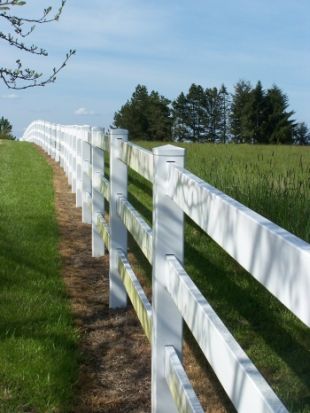
Publisher:
Bonnie King
CONTACT:
Newsroom@Salem-news.com
Advertising:
Adsales@Salem-news.com

~Truth~
~Justice~
~Peace~
TJP
Jun-05-2007 04:30

 TweetFollow @OregonNews
TweetFollow @OregonNews
New Economic Study Examines Effect of Land-Use Laws on Property Values
Salem-News.comThe study examined the levels and trends of land values in parts of Oregon over the past 40 years.
 Rural Oregon land Photo by: Bonnie King |
(CORVALLIS, Ore. ) - A new analysis of land values in Oregon finds no evidence that the state's land-use regulations have caused a generalized reduction in property values.
The study, published this week by Oregon State University economists William Jaeger and Andrew Plantinga, examines the ways in which land-use regulations and Oregon's land-use planning system may affect property values.
"Despite the widespread belief that most land-use regulations have negative effects on property values," Jaeger said, "economic reasoning suggests that the opposite may be true."
The economists explain that land-use regulations, in general, can have three potential effects on land values: restriction effects, amenity effects and scarcity effects.
The effect of restricting development likely will be negative, but the effects of scarcity and the amenities associated with regulated development can have a positive effect, potentially offsetting the negative restriction effect.
Jaeger and Plantinga examined the levels and trends of land values in parts of Oregon over the past 40 years, beginning before Oregon's land-use planning system was in place.
They compared land value patterns for restricted and developable lands, and compared patterns in Oregon with patterns for similar areas in Washington State, where land-use planning has only recently been enforced.
The researchers found that:
Land values (adjusted for inflation) have generally risen since the introduction of Oregon's land-use planning system in 1973, both for rural lands zoned for farm and forest use and for developable lands inside and outside of urban growth boundaries;
Since 1973, when Oregon's land-use planning system was adopted, the rate of change in land values in Oregon has been about the same as for similar lands in Washington; Lands with the most stringent development limits (such as those with exclusive farm or forest use zoning) have increased in value at about the same rate as lands without such restrictions;
In the Lane County sample, the value of lands outside the Eugene urban growth boundary (UGB) grew slightly faster than properties inside the UGB;
There is no evidence of slower rates of increase overall for the Oregon lands studied compared to lands in the Washington counties studied.
"Our results are consistent with the design of Oregon's land-use planning system and with economic principles," Plantinga said. "Oregon's land-use planning system is not intended to limit the amount of development that occurs, but rather it is intended to influence the location of development in ways that are consistent with various land-use planning goals.
"Sprawl or scattered development can raise costs for public services and infrastructure and produce adverse effects when incompatible land uses (e.g., farming and residential) are mixed," he added.
In addition, government programs such as Oregon's special tax assessments for farmlands are likely to be "capitalized" into land prices, raising them by as much as 14 percent on average.
These findings are consistent with results from other economic studies that have found often-substantial positive amenity and scarcity effects that can offset some or all of the negative restriction effects associated with land-use regulations.
To view the complete report, see: extension.oregonstate.edu/catalog/pdf/sr/sr1077.pdf
Articles for June 4, 2007 | Articles for June 5, 2007 | Articles for June 6, 2007
Salem-News.com:


Quick Links
DINING
Willamette UniversityGoudy Commons Cafe
Dine on the Queen
Willamette Queen Sternwheeler
MUST SEE SALEM
Oregon Capitol ToursCapitol History Gateway
Willamette River Ride
Willamette Queen Sternwheeler
Historic Home Tours:
Deepwood Museum
The Bush House
Gaiety Hollow Garden
AUCTIONS - APPRAISALS
Auction Masters & AppraisalsCONSTRUCTION SERVICES
Roofing and ContractingSheridan, Ore.
ONLINE SHOPPING
Special Occasion DressesAdvertise with Salem-News
Contact:AdSales@Salem-News.com
googlec507860f6901db00.html

Terms of Service | Privacy Policy
All comments and messages are approved by people and self promotional links or unacceptable comments are denied.
[Return to Top]
©2026 Salem-News.com. All opinions expressed in this article are those of the author and do not necessarily reflect those of Salem-News.com.